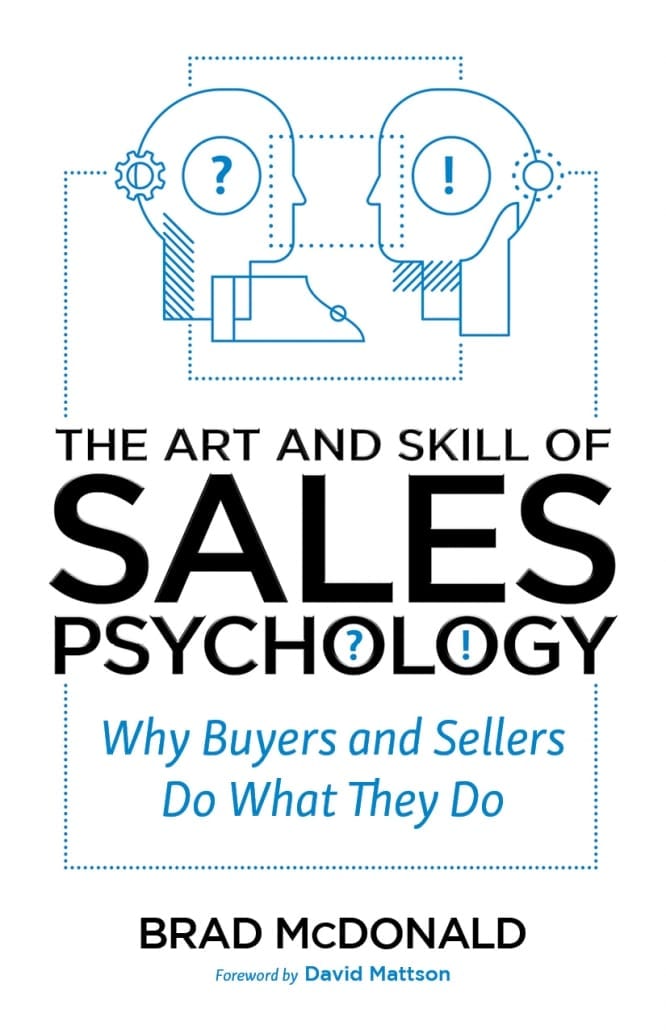Sales Success – Strategy or Mindset?

Sales is an emotionally charged vocation. Sometimes all it takes is one unsuccessful appointment, one prospect who looked promising and then went dark or one too many think-it-overs to cause a salesperson to question their choice of profession – or judgment. Clearing your salespeople’s heads of the “trash” that besieges their identity and self-image; helping them better understand the fears, anxieties and confusion about the sales process, both the seller’s and the buyer’s; steadying their ship as they ride the emotional seas of sales – all of these might be just as important as drilling them in the right tactics. Of course, tactics are important. They’re the answer to the question, “What do I do?” But understanding the why behind the what might be the best place to start.
In my own sales experience and in my coaching efforts with hundreds of salespeople, it is apparent that most of us in a sales role struggle to some degree or another with the idea that we are engaging in one of the least respected of all professions. Here are some fundamental mindsets needed to regain self-respect and a healthy sales mindset:
- Embrace rejection – Go for the “NO.” Let ”NO” be your second favorite word in the English language. Stop wasting time on eternal “think-it-overs,” stop chasing non decision makers and stop appearing desperate in front of prospects. Sales interactions should be win-win for everybody. If you find yourself wanting or needing the sale more than your prospect, you’re probably not going to emerge from the sales process as a winner.
- Get comfortable with being NOT OK – If you, like most people, let other peoples’ opinions determine how you feel about yourself, you’ll spend a lot of life feeling NOT OK. Coincidentally, if you’re always searching for your own “OK-ness” you’ll often find yourself in competition with your prospect for who’s going to get their needs met in a sales interaction. Learning to be OK on the inside while being NOT OK on the outside is paramount for sales success.
- Tame your inner voices – Dwelling within each of our minds are the competing voices of our parents, ourselves as children and, fortunately, the logical fact driven Adult we strive to be. Parents can chastise – “Salespeople are crooks! When will you get a real job?” – or nurture – “You’re a brave soul! Success is right around the corner for you!” Children can get highly emotional – “If I don’t make this sale I’m sunk for sure!” – or seek approval – “I wonder if she likes me, she didn’t seem happy with my price.” Adults, however, tend to seek useful information, make clear decisions and filter out inappropriate responses – “It might be time to walk away from this sale, it’s going nowhere; too much time spent on a prospect who is not motivated to make a decision.” Knowing which voice to heed and which to ignore is critical for developing mental toughness.
Sales strategy, tactics and process are invaluable to sales success. But people don’t ultimately fail in sales because of poor strategy. They fail because they give up and they give up because their mind is not sufficiently steeled for the rough seas of the sales profession. Once they fix their mindset, then another day of rejection is no longer an anxiety producing event, it’s just another step closer to a YES, a big sale and sales success.
About the Author

, is an operations director at Sandler Training. He is responsible for domestic franchisee support and growth. This includes all facets of on-boarding, training, and coaching of trainers within the network. He also provides on-site training to Sandler Global clients. In addition he spent 28 years in the United States Navy, principally as a submarine officer.
For more information, please visit www.sandler.com.







Leave a Reply
Want to join the discussion?Feel free to contribute!